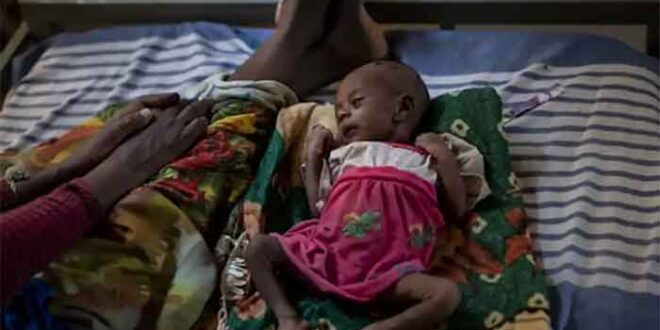September is supposed to be a very critical month for the nearly 5.5 million people of Tigray region of Ethiopia affected by very severe food shortages, almost half of them on brink of starvation. If the neighboring regions of Afar and Amhara are included then as many as 13 million people face a very difficult situation. The United Nations officials have been preparing to make their best effort possible for reaching critical food supplies as well as medicines and some other essentials to several remote settlements.
However in the last week of August these efforts received a big setback when huge stocks of highly scarce fuel oil were stolen. On August 25 The World Food Program (WFP) authorities stated that Tigrayan authorities stole 5,70,000 liters of fuel kept for WFP operations in Tigray. They said that millions will starve if we do not have fuel to deliver food. They said that this is outrageous and disgraceful.
Of course it is, but this calls for some explanation as it is the authorities who are accused of stealing UN stocks. The Tigray region has been in serious conflict with the Ethiopian national government in recent times, and the conflict continues to have a very harmful impact despite an uneasy, uncertain truce reached in March this year. In this uncertain situation it has become extremely difficult to ensure that at least the available food supplies and medicines reach those who need these desperately. A large number of internally displaced people are highly vulnerable as they are also deprived of coping mechanisms available in home conditions. In February 2021, Albera Tola of the Ethiopian Red Cross Society had described the people reaching camps in Tigrayan as emaciated, and he had estimated that 80% of the Tigrayans were very difficult to reach for relief.
Meanwhile UN/WFP documents had also been reporting access to badly affected settlements as an important constraint, apart from overall resources and relief supply constraints. These sources had mentioned the difficulties in ensuring adequate fuel supplies as a very important constraint. The UN/WFP officials must have made a lot of effort to stock whatever fuel oil supplies they could manage so that vehicles, generators etc. were not deprived of essential fuel supplies.
Hence this fuel theft is no ordinary theft. This can make life or death difference for a large number of people in the very near future. It is also surprising that such vast stocks of fuel can be stolen from UN storages which must have been well guarded. As Tigrayan authorities are blamed and as this region is dominated by the Tigray People’s Liberation Front or the TPLF (which was also the dominant force in the previous national government for nearly 25 years), questions are being raised regarding why the TPLF has indulged in such irresponsible action which would be clearly very damaging for the people of Tigray facing serious shortages. Will the stolen fuel be used for military purpose of TPLF in its conflict with the national government, or for narrow economic gain, or will it be returned to the UN/WFP?
Here it may be mentioned that when the TPLF was in power in Ethiopia, it enjoyed a lot of support from the USA and some western publications earlier even blamed the new national government for creating such conditions that relief cannot reach several parts of Tigray, something which has been denied strongly by the government. However the ground situation appears to be somewhat different and the TPLF cannot escape its share of the blame. Actually in such a serious humanitarian situation both sides must have worked harder to bring peace and stability so that the relief work could become easier and reach more people.
As several US authorities are close to the TPLF because of their strong relations with it during its years in power at the national level, can they not convince it to behave in a more responsible way so as to facilitate timely relief? Another strong supporter of the TPLF at the international stage has been Tedros A. Ghebreyesus. He had key positions in the TPLF dominated government earlier and now he is the Director-General of the WHO. He has been making strong statements to draw attention to the humanitarian crisis in Tigray but has acted in a partisan way instead of making more balanced efforts to end the conflict. Now after the theft of scarce fuel, he should clearly speak against those responsible for this and step up efforts for ensuring that relief reaches people in time.
After all, this is the most critical period, as from October onwards with the trickling in of the new harvest (even though it will not be an adequate harvest), the situation is expected to improve at least in comparison to the very serious situation that exists just now. One hopes that very soon significant steps can be taken to improve the situation here.
 Eurasia Press & News
Eurasia Press & News




